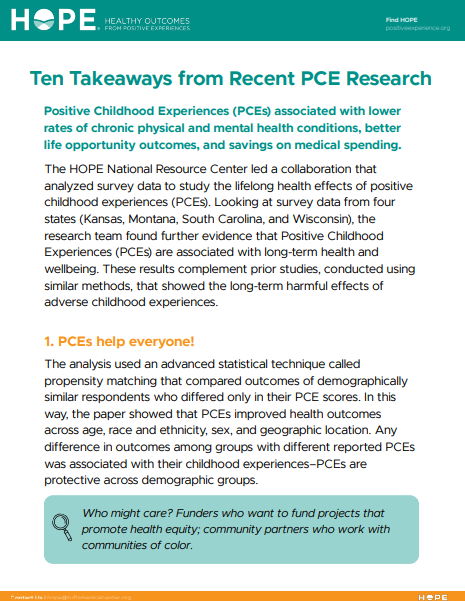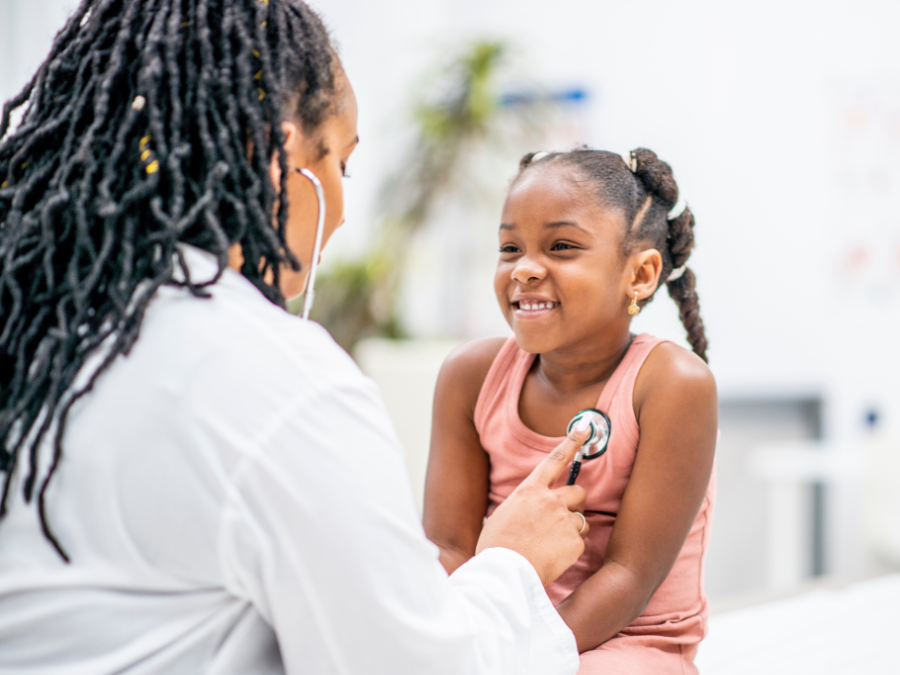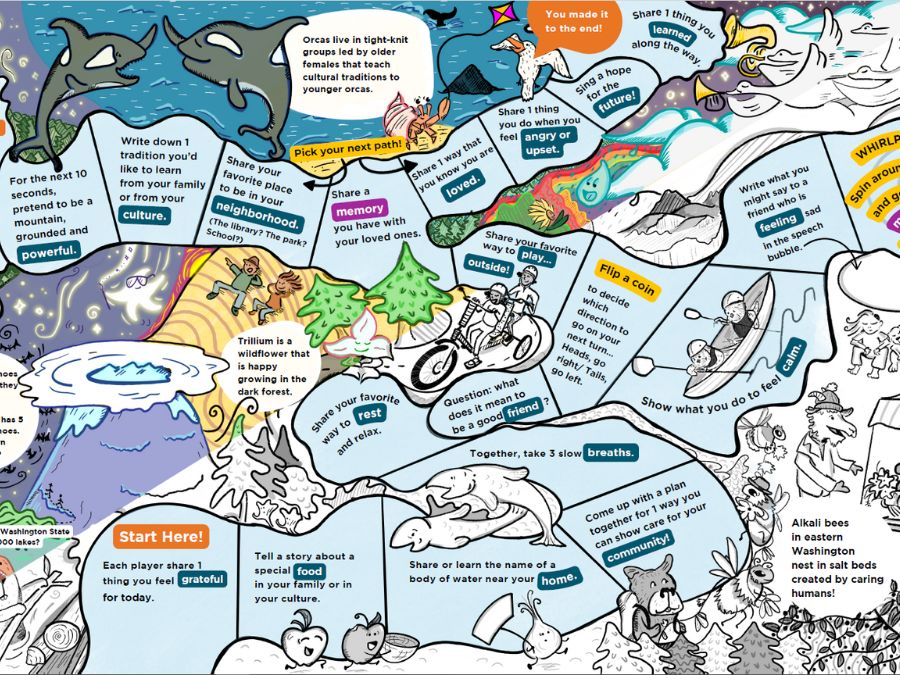Ten Takeaways from Recent PCE Research
The HOPE National Resource Center led a collaboration that analyzed survey data to study the lifelong health effects of positive childhood experiences (PCEs). Looking at survey data from four states (Kansas, Montana, South Carolina, and Wisconsin), the research team found further evidence that Positive Childhood Experiences (PCEs) are associated with long-term health and wellbeing. These results complement prior studies, conducted using similar methods, that showed the long-term harmful effects of adverse childhood experiences.
In this webinar Dr. Robert Sege discusses the findings of the HOPE National Resource Center’s latest publication “Positive Childhood Experiences and Adult Health and Opportunity Outcomes in 4 US States.” This cross-sectional study used Behavioral Risk Factor Surveillance Survey (BRFSS) data from four states, analyzed in 2023-2024. Regression models of adult cohorts by PCE exposure and matched by demographic characteristics were used to assess associations between PCEs and current life opportunities (post-secondary education, income), health risk behaviors (moderate to heavy drinking, smoking), chronic health conditions (arthritis, asthma, cancer, chronic obstructive pulmonary disease [COPD], depression, diabetes, heart disease, kidney disease, overweight or obesity, stroke), and overall physical and mental health. Prevented fractions for the population were used to calculate the reduced proportion of total disease-specific medical spending and healthy life-years savings associated with PCEs.






